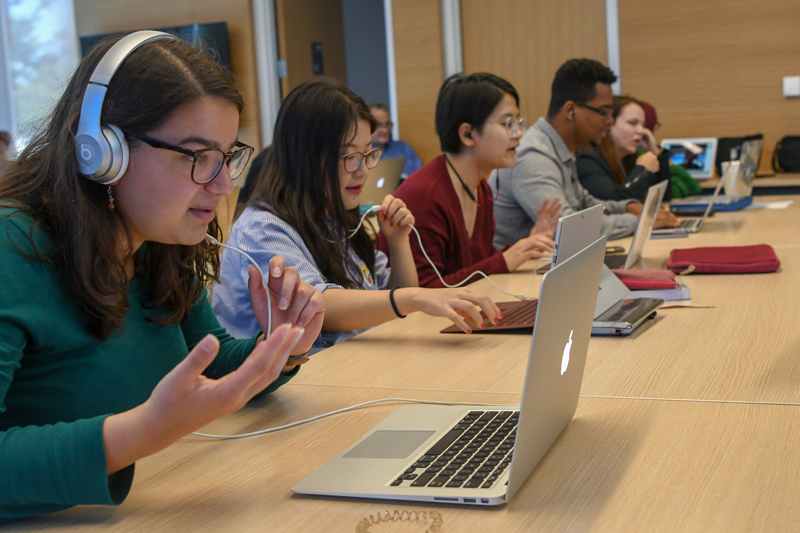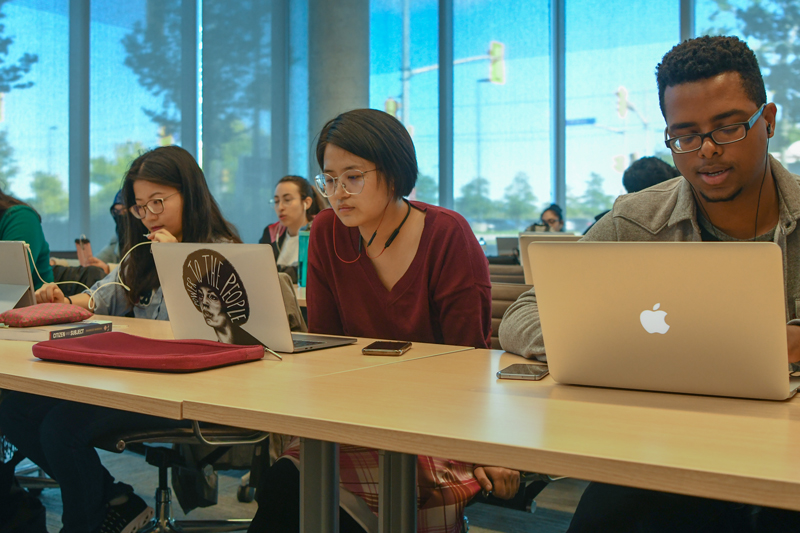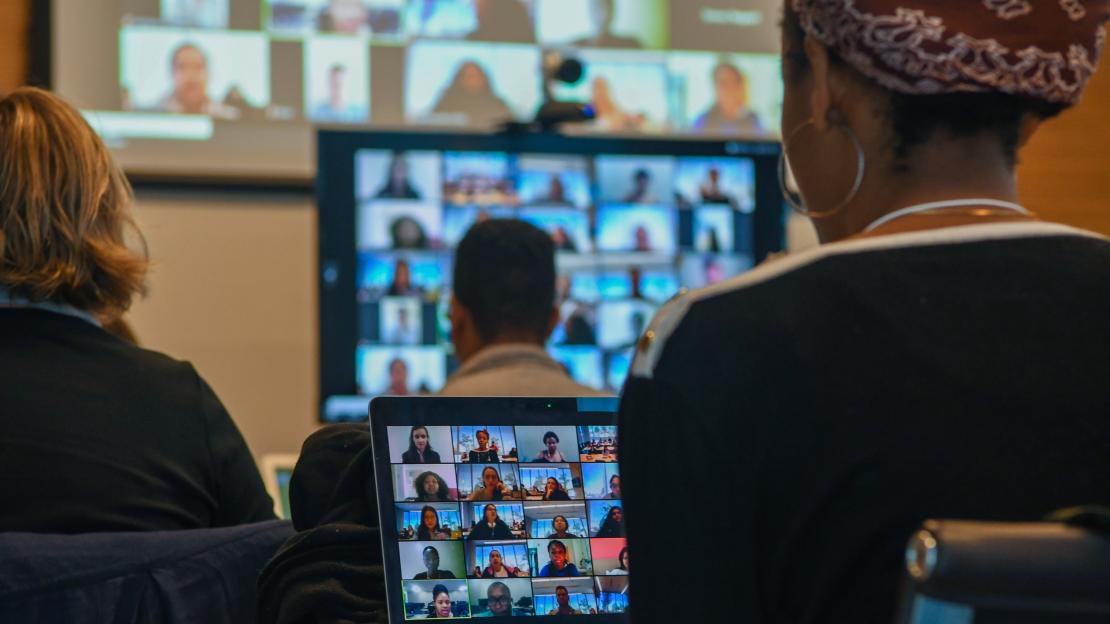A group of students and faculty from the international development studies program recently challenged the traditional online classroom by discussing citizenship one-on-one with students half way across the globe.
The first Citizenship Across Contexts event digitally connected students at U of T Scarborough with students at the University of Cape Town and the University of the Witwatersrand, Johannesburg.
Instead of a group of people speaking to a single screen, students were given discussion topics on citizenship, then repeatedly paired at random with students in South Africa to talk on their laptops and phones. Students spoke individually, in pairs and in small groups of four to five to broaden their discussions.
“I’ve never experienced an online classroom in this kind of participatory way. Online classrooms are often very formal and stilted”, says Bettina von Lieres, assistant professor, teaching stream in the Centre for Critical Development Studies. “There was a lot of energy and participation in our classroom. Students were really collaborating at the interpersonal level.”
While on a research trip, von Lieres was drawn to the Global Citizenship Program at the University of Cape Town. She met two faculty members, Sarah Oliver and Lunathi Ngwane, co-conveners for a short course called Dialogue and Deliberation for Active Citizenship.
Through their common interest in the concept of citizenship, and their drive to connect learners across the globe to share their stories, the idea of Citizenship Across Contexts emerged.
“Students really began delving into their own experiences,” von Lieres says. “Experiential learning doesn’t just have to happen in your own locality, it can actually also happen in online spaces.”

Discussions bridge distance
About 20 students at U of T Scarborough and 25 students in South Africa participated using Zoom, a video tool that allows group calls to easily break into individual calls, then reconvene to listen to discussion topics.
“It’s the kind of facilitation that allows for full participation and for students to really feel present in the classroom,” Oliver says. “In only a two-hour session, there was a feeling of a collective community.”
The event was designed to allow students to connect on a deeper level in an online space, where they could talk about their personal experiences with citizenship, specifically with inclusion and exclusion.
“In all the work we do, our point of departure is that everyone has knowledge and experience,” Ngwane says. “We’re asking people to share themselves, which can be hard to do in a big group, but it is a little easier to just have a conversation with another person.”
Fourth-year student Simon Dessie was born in Ethiopia, lived in Eritrea (a bordering country) as a child and immigrated to Canada when in high school. But he only has Ethiopian and Canadian citizenship. Until recently, Eritrea would not grant Ethiopians citizenship.
“The idea of citizenship is more than just being or having a legal membership to a given state. It defines a person's belongingness, livelihood and identity,” he says. “The idea of citizenship can be based on where an individual feels at home.”
He shared his experience with students living in South Africa, some of whom hailed from different countries in Africa, China, England, India and Saudi Arabia.
“It was very interesting to learn that citizenship means access to most of the students from South Africa,” he says. “Due to historic and systemic discrimination and segregation, people of colour have limited access to mobility and citizen's rights within their own country.”
Fifth-year student Jianan Xu finished a co-op placement in Cape Town through the international development studies program. Her undergraduate thesis is about land reform in South Africa. For her, the event was an opportunity to understand student perspectives about the country’s political context.
Xu says she was grateful to connect with passionate youth whose experiences of citizenship are shaped by a need for change they experience first-hand.
“The opportunity of getting to know students from another context is very precious,” she says. “It is only when I encounter the difference that I start to reflect on my positionality and how that impacts my experience as a citizen."

